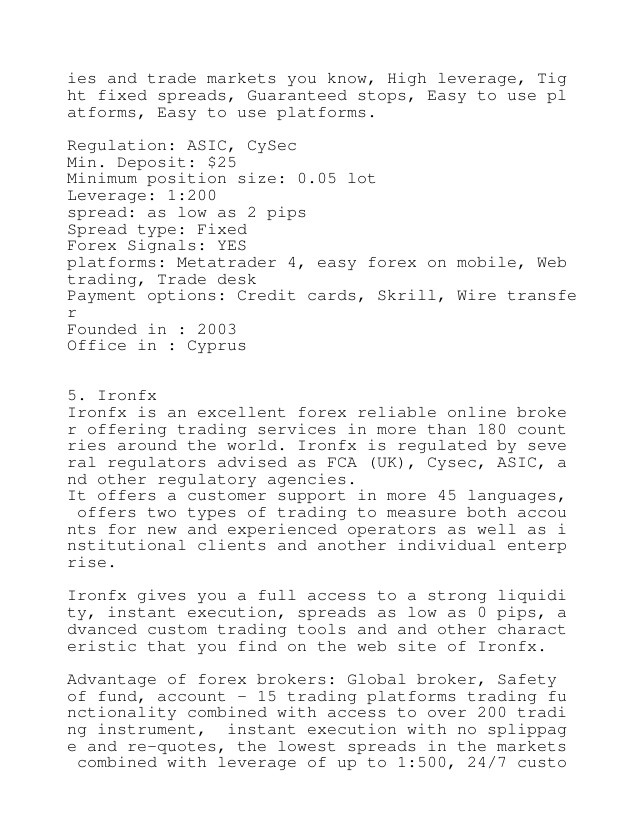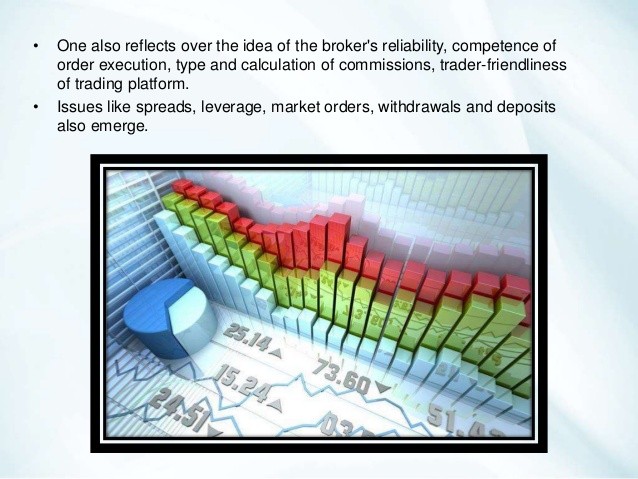5 Types of Reliable Forex Brokers You Need to Know About
Post on: 4 Июнь, 2015 No Comment

54 Comments
7069 Views
A large part of Forex trading success has to do with the broker aspect. Now we will not talk about the regulatory aspect of broker business; we will probably do that in subsequent articles. But we will try to talk a little bit about broker pricing issues, which inevitably will lead to a discussion about brokers and how they can be classified according to the kind of price quote structure they deliver to traders.
Forex brokers can be classified based on the pricing structure and market access they provide to their clients as follows:
What that all mean?Read on!
Electronic Communication Network (ECN) Brokers
ECN brokers can be called: “give it as it is” brokers. The price quotes seen by their traders are the same as those processed by the banks on the interbank foreign exchange market. There is no dealing desk interference with the price quote structure and that is why ECN pricing represents the most transparent system of delivery of price quotes to Forex brokers. This service comes at a cost, as most ECN brokers will either charge commissions on trades (in addition to spreads), or require that the trader maintains a large account balance, or both.
Straight-Through Processing (STP) Brokers
This term is now used to also include non-dealing desk brokers (NDD). STP brokers pass on their clients’ orders straight to the liquidity providers on the interbank Forex market as soon as they receive those orders. Traders who trade financial news releases are less prone to receiving re-quotes when they use the services of an STP broker. Delays in getting orders processed are also eliminated. STP brokers make their money from the mark-up of the spreads they are given by their liquidity providers; they do not make their profits from other traders’ losses as is the case with market makers.
No-Dealing Desk (NDD) Brokers
This term can be used to encompass STP, ECN or STP + ECN brokers. With NDD brokers, there is no dealing desk and orders are passed on straight to the liquidity providers for execution. NDD brokers make their money either by increasing the spreads when there is increased volatility, or by charging commissions.
Dealing Desk (DD) Brokers:

These brokers are also known as market makers. Most Forex brokerage businesses in operation today are market makers. Market makers usually offer fixed, low spreads, which is a selling point of their business. However, they usually do not offer direct quotes from the liquidity provider to their traders. They “make the market”, or put another way, they offer price quotes which are slightly different from what comes in from the liquidity providers. More often than not, they take contrary positions to the trades placed by every single trader. Using market makers can undo a trader, as anytime the trader makes profit; it is bad business for the DD brokers. There have been complaints of traders being “stopped out” deliberately by DD brokers, even when on other trading platforms, the prices never got to the stop loss points set by traders. This phenomenon led the US regulatory agencies to sanction a well-known DD broker operating in the US. There is also the issue of slippage and re-quotes, which are very common with DD brokers.
Direct Market Access (DMA) Brokers
DMA brokers offer trades direct access to liquidity providers to place orders. By definition, all ECN brokers are direct market access brokers. Traders get five digit pricing, strictly variable spreads and market executions, with an option of having depth of the market (DOM) book access.
From what has been listed above, it is pretty obvious that traders get the best deal if they do business with ECN, NDD or STP brokers. Examples are Dukascopy (€1,000), FxPro XTrader account ($1,000), FXCM Active Trader account ($50,000) and ForexYard Insitutional Account ($50,000).
P.S.: What’s your favorite type of broker? Let me know in the comment section.
P.P.S.: Like the post, please spread the word and share it with others. Thank You!














